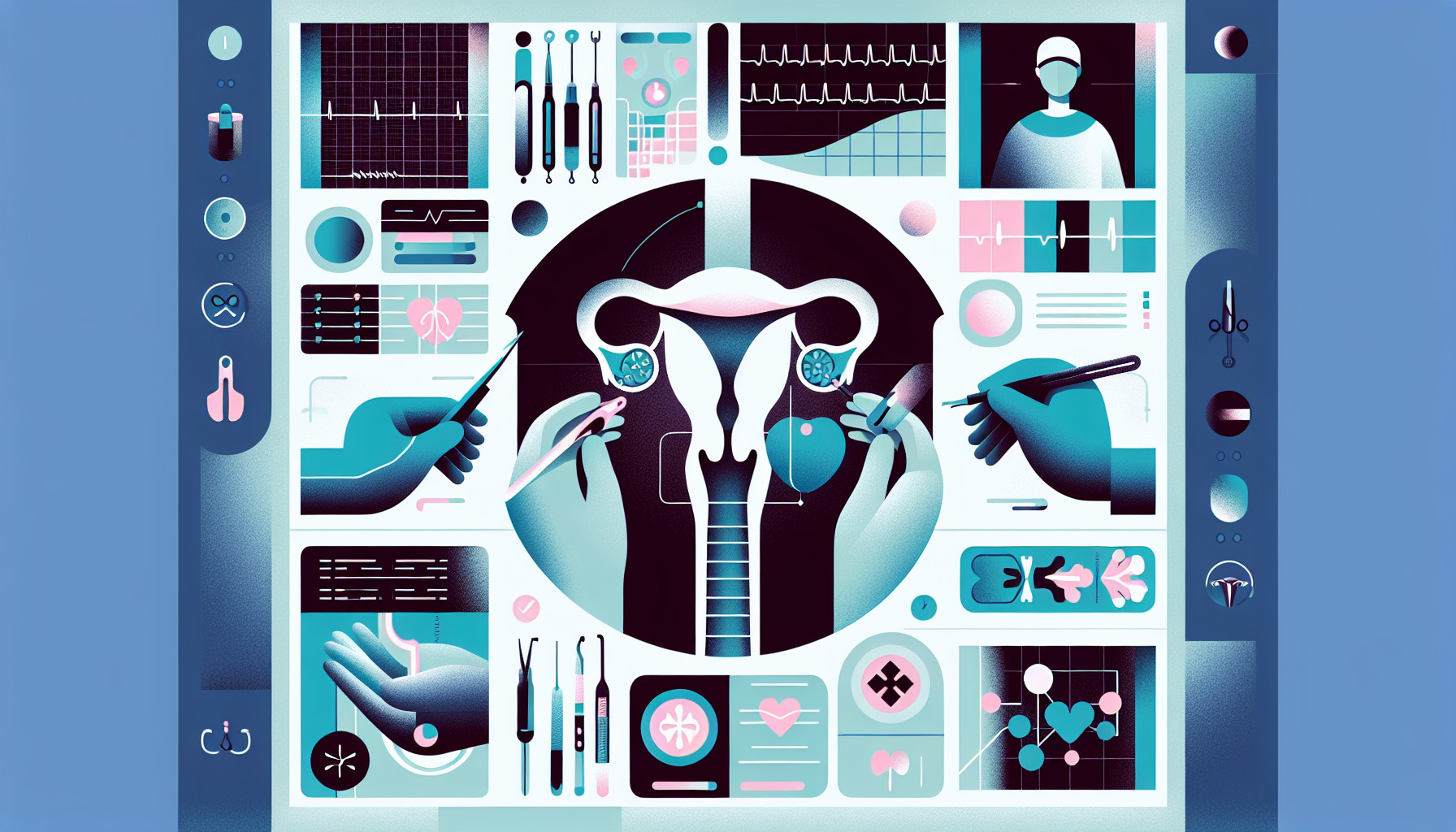Our Summary
This research paper is about a study comparing two treatments for heavy menstrual bleeding - bipolar radiofrequency endometrial ablation and thermal balloon ablation. Researchers wanted to know which treatment was more effective and how they affected women’s quality of life.
The study looked at data from six different trials involving a total of 901 patients. The results showed that 12 months after treatment, women who had the bipolar radiofrequency endometrial ablation were more likely to stop having periods altogether compared to women who had the thermal balloon ablation.
However, there was no difference between the two treatments when it came to pain during periods or treatment failure after 12 months. The only significant difference in quality of life was found in sexual activity pleasure scores, which was higher in women who had the bipolar radiofrequency endometrial ablation.
In conclusion, both treatments helped reduce menstrual loss and improve quality of life. But, the bipolar radiofrequency endometrial ablation was found to be more effective in stopping periods and increasing sexual pleasure.
FAQs
- What was the purpose of the study comparing bipolar radiofrequency endometrial ablation and thermal balloon ablation?
- What were the main findings of the study on treatments for heavy menstrual bleeding?
- Did the study find any difference in pain during periods or treatment failure between bipolar radiofrequency endometrial ablation and thermal balloon ablation?
Doctor’s Tip
A helpful tip a doctor might tell a patient about endometrial ablation is to discuss with them the potential benefits and risks of the procedure, as well as alternative treatment options. It is important for the patient to have realistic expectations about the outcome of the procedure and to be aware of any potential side effects or complications that may occur. Additionally, the doctor may recommend follow-up appointments to monitor the patient’s progress and address any concerns or issues that may arise after the procedure.
Suitable For
Patients who are typically recommended for endometrial ablation are those who suffer from heavy menstrual bleeding (menorrhagia) that has not responded to other treatments such as medication or hormonal therapy. Endometrial ablation is often recommended for women who have completed their childbearing years and do not wish to have any more children. It is also recommended for women who have a normal uterine cavity and do not have any underlying gynecological conditions that may be causing their heavy periods.
In this study, the patients included were women with heavy menstrual bleeding who were seeking treatment to improve their quality of life. The results of the study suggest that both bipolar radiofrequency endometrial ablation and thermal balloon ablation can be effective treatments for these patients, with the former being more effective in terms of stopping periods and increasing sexual pleasure.
Timeline
Before endometrial ablation, a patient may have been experiencing heavy menstrual bleeding, cramping, and other symptoms related to their menstrual cycle. They may have tried other treatments such as medications or hormonal therapy without success.
During the endometrial ablation procedure, the patient will be given anesthesia to minimize discomfort. The doctor will use a special device to destroy the lining of the uterus, which is causing the heavy bleeding. The procedure is typically done on an outpatient basis and can take anywhere from 15 to 45 minutes.
After the procedure, the patient may experience some cramping, spotting, or discharge for a few days. They will need to rest and avoid strenuous activities for a short period of time. Over the next few weeks, the patient should notice a decrease in the amount of bleeding during their menstrual cycle.
In the months following endometrial ablation, the patient should experience a significant reduction in menstrual bleeding. Some women may even stop having periods altogether. They may also notice an improvement in their quality of life, with fewer symptoms related to heavy menstrual bleeding.
Overall, endometrial ablation is a safe and effective treatment for heavy menstrual bleeding, with the potential to greatly improve a patient’s quality of life.
What to Ask Your Doctor
- What are the potential risks and complications associated with endometrial ablation?
- How long does the procedure take and what is the recovery time?
- Will I still be able to get pregnant after having endometrial ablation?
- How long can I expect the results of the procedure to last?
- Are there any lifestyle changes I need to make before or after the procedure?
- Will I need any follow-up appointments or additional treatments after the procedure?
- How will endometrial ablation affect my hormone levels and overall menstrual cycle?
- Are there any factors that may make me ineligible for endometrial ablation?
- What are the success rates of endometrial ablation for reducing heavy menstrual bleeding?
- Are there any alternative treatments or procedures that I should consider?
Reference
Authors: Zhai Y, Zhang Z, Wang W, Zheng T, Zhang H. Journal: Int J Gynaecol Obstet. 2018 Jan;140(1):3-10. doi: 10.1002/ijgo.12340. Epub 2017 Nov 9. PMID: 28984905
